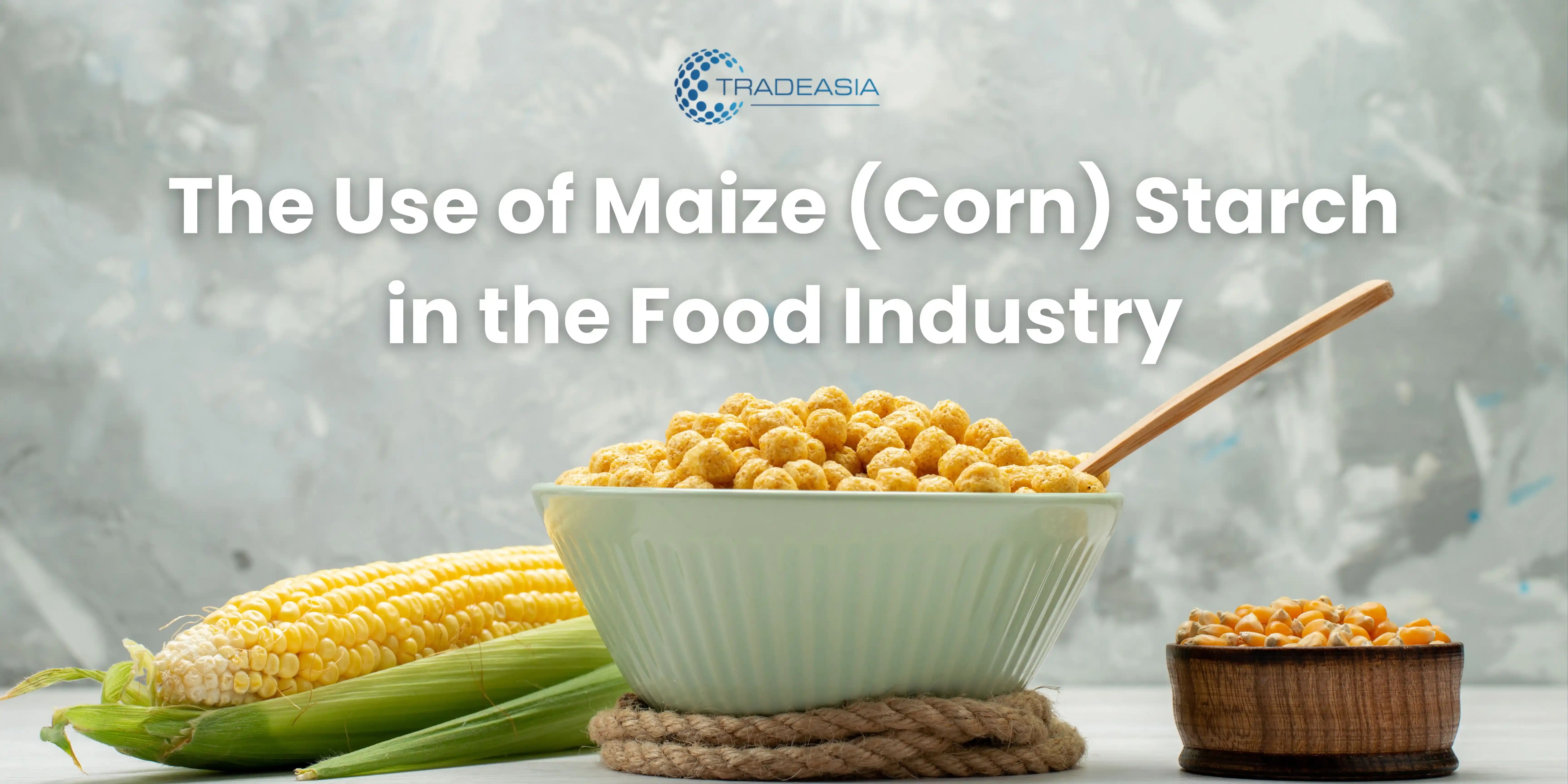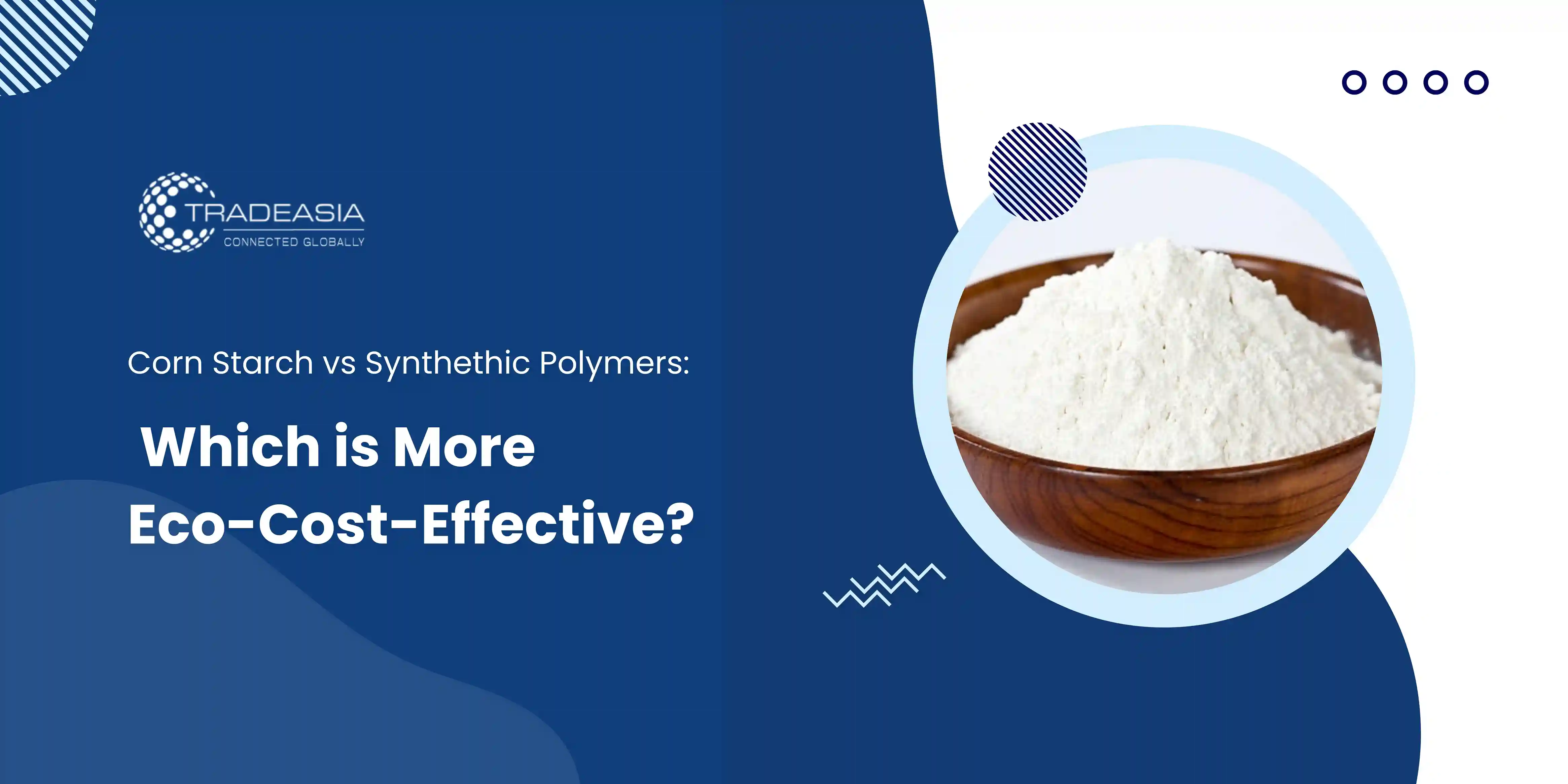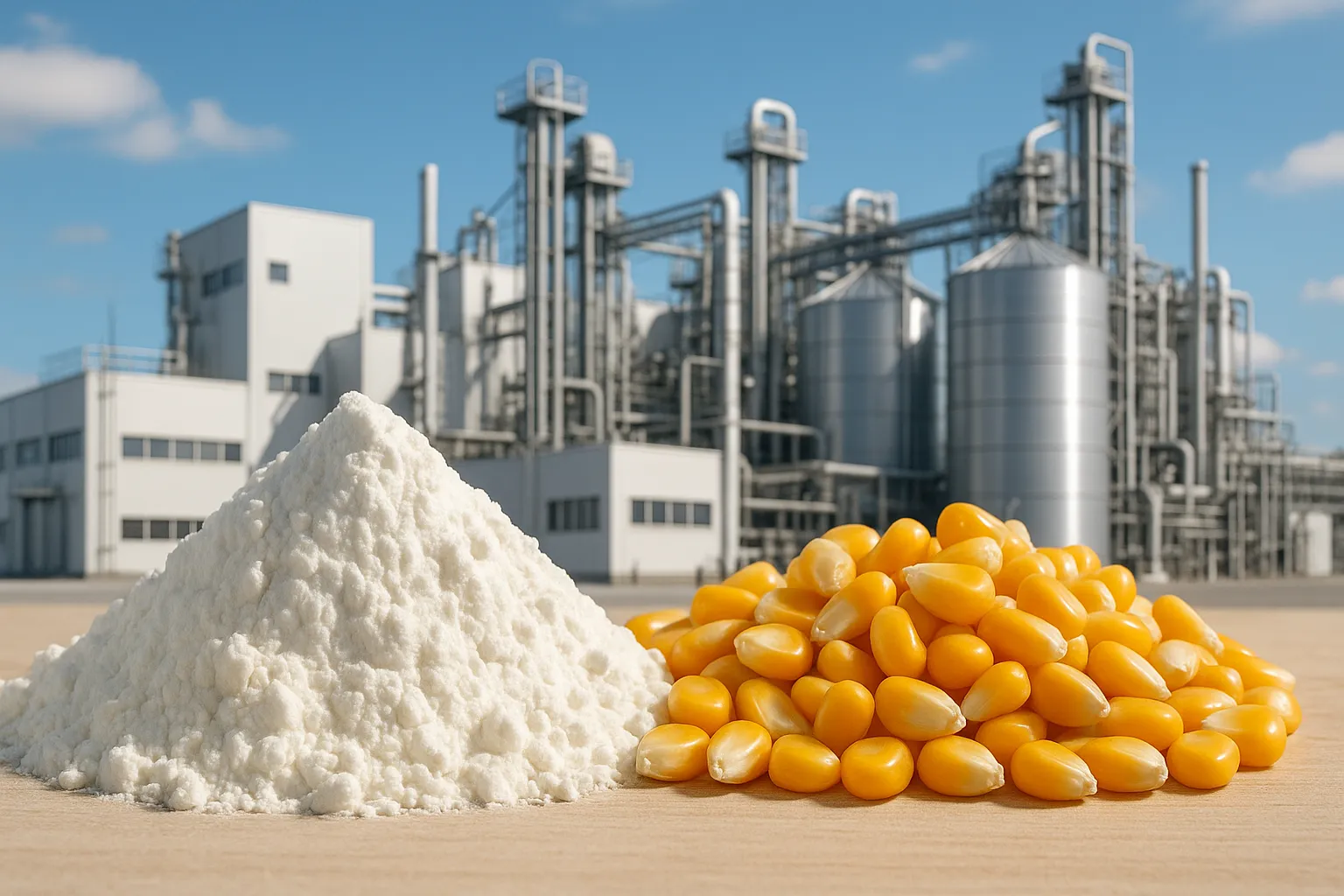Introduction to Maize (Corn) Starch
Maize starch, also known as corn starch, is a fine, powdery substance derived from the endosperm of corn kernels. It has long been a staple in various industries due to its thickening, stabilizing, and binding properties. As a carbohydrate polymer, maize starch plays an essential role in both food and non-food sectors. Its affordability, wide availability, and non-toxic nature make it one of the most popular starches used globally.
In India, maize starch holds strategic importance in the food processing, textile, paper, and pharmaceutical sectors. The country, being one of the leading producers of corn, provides a robust raw material base for starch manufacturers. Over the years, the demand for high-purity maize starch has surged, especially in urban centers where processed and packaged food production is on the rise.
According to market reports, the Indian corn starch industry is poised for steady growth, supported by government incentives, rising industrialization, and expanding end-user industries. The versatility of this product enables its usage across a broad spectrum of formulations and processes. From thickening soups to coating tablets in pharmaceuticals, maize starch is indispensable.
If you're new to the world of industrial starches, understanding the basics of maize starch and its sourcing can help you make informed decisions. This guide will walk you through the essential details of this powerful yet humble powder.
Sources and Processing of Maize Starch
Maize starch is primarily sourced from yellow or white corn grown extensively in India’s agricultural belts such as Maharashtra, Karnataka, Madhya Pradesh, and Bihar. The extraction process begins with wet milling, where the corn kernels are steeped in water to soften them. Once softened, they are ground to separate the germ, fiber, gluten, and starch. The resulting starch is then filtered, washed, dried, and milled into a fine powder.
This process is crucial to maintain product purity, especially for food-grade applications. Indian manufacturers follow strict quality standards like FSSAI, ISO, and GMP to ensure the starch remains free from contaminants and meets international safety standards. In pharmaceutical and cosmetic applications, ultra-refined grades of maize starch are also available to suit specific formulation requirements.
Maize starch sourcing in India has become more streamlined with the presence of B2B platforms and chemical suppliers like Tradeasia India, which offer bulk quantities to manufacturers and distributors. These suppliers often partner with local corn processors to ensure consistent availability and competitive pricing.
Furthermore, modern processing plants now incorporate automated drying and packaging systems, reducing the risk of microbial contamination and enhancing shelf life. This attention to sourcing and processing makes India a reliable hub for maize starch exports and domestic distribution.
Food Industry Applications
The food industry is one of the largest consumers of maize starch, using it in countless formulations and processed products. In cooking and baking, corn starch is widely used as a thickener for gravies, soups, sauces, and pie fillings. It also adds a silky texture to puddings and custards and prevents caking in powdered foods like icing sugar and baking mixes.
Commercially, maize starch is used in ready-to-eat meals, bakery products, dairy items, and instant snacks. In these applications, it serves multiple roles: texture modifier, moisture retainer, fat replacer, and stabilizer. As consumer demand shifts toward clean-label and gluten-free alternatives, maize starch stands out as a naturally gluten-free and non-allergenic option.
Maize starch also improves the shelf life and freeze-thaw stability of frozen foods. It helps prevent water separation in refrigerated items, contributing to a more appealing product appearance. The use of modified corn starch has further widened the possibilities, allowing manufacturers to tailor properties like viscosity, heat resistance, and solubility to specific food processing needs.
Businesses seeking reliable food-grade maize starch in India can find it easily through Tradeasia's product portal, which features consistent supply chains and bulk ordering options. Food manufacturers benefit from the technical support and documentation available, including TDS and COA for quality assurance.
Industrial and Pharmaceutical Uses
Outside the kitchen, maize starch plays an integral role in industries like textiles, pharmaceuticals, paper, and adhesives. In textile manufacturing, it is used for sizing yarns and finishing fabrics to improve strength and texture. In the paper industry, maize starch enhances the bonding of paper fibers, improving surface strength and printability.
In pharmaceuticals, maize starch serves as a binder and disintegrant in tablet formulations. It helps maintain the integrity of tablets while ensuring they dissolve properly once ingested. According to a report by Pharmaexcipients, maize starch's inert and absorbent properties make it suitable for controlled-release and encapsulated drug delivery systems.
In adhesives, especially those used in packaging and labeling, maize starch acts as a natural bonding agent. It is biodegradable, cost-effective, and easily modifiable to improve tackiness and drying time. These qualities are especially valued in the packaging and paper bag manufacturing sectors.
Companies looking to procure high-grade maize starch for industrial use can explore suppliers like Chemtradeasia India, who offer multiple grades based on industry application. They also provide technical consultation to help select the right grade for your production process.
Choosing a Reliable Maize Starch Supplier in India
When selecting a maize starch supplier in India, several factors should be considered: product quality, compliance certifications, supply consistency, pricing transparency, and technical support. It's important to work with suppliers who offer a comprehensive product profile, including specification sheets, COAs, and access to safety data.
Chemtradeasia India, for instance, is a trusted supplier of bulk maize starch and other industrial chemicals across the subcontinent. With strong distribution networks and established industry partnerships, they offer an advantage in terms of stock availability, lead times, and after-sales support. Their product catalog covers multiple sectors, ensuring clients find the right formulation for their needs.
Another key advantage is access to multilingual and industry-specific technical assistance. Whether you're in the food, pharmaceutical, or textile industry, Chemtradeasia’s experts can help ensure your specifications align with end-use requirements and local regulations.
If you’re considering bulk procurement or export collaboration, don’t hesitate to contact Tradeasia directly. Their team can assist with quotations, product customization, sample delivery, and compliance documentation to make sourcing more efficient and transparent.
Conclusion: A Versatile Ingredient for Every Industry
Maize starch has established itself as a multifunctional ingredient with wide-ranging applications. From thickening soups to reinforcing tablet coatings, its utility extends across everyday products and large-scale industrial processes. Its natural origin, ease of modification, and cost-effectiveness make it a preferred choice in a sustainability-conscious world.
As demand for processed and industrial-grade ingredients grows in India, maize starch will continue to play a crucial role. Choosing a reliable supplier ensures not only product consistency but also regulatory compliance, which is vital for sensitive sectors like food and pharmaceuticals.
With suppliers like Chemtradeasia India, businesses can access high-quality maize starch tailored to their specific needs. Their end-to-end supply chain solutions help minimize delays and optimize production processes across industries.
Whether you're a beginner learning about corn starch or a seasoned procurement manager looking for a new supplier, this guide is your gateway to understanding and sourcing maize starch effectively.




Leave a Comment